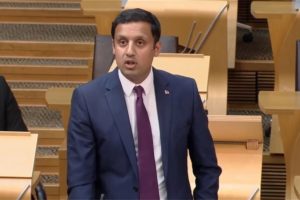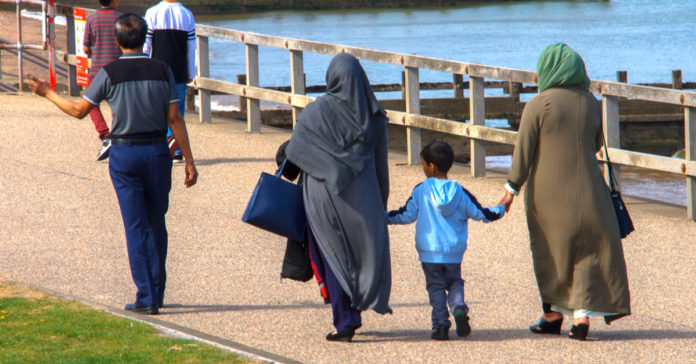A major new report has said Islamophobia is on the rise in Scotland and the main victims of it are Muslim women.
The report by the Cross Party Group on Tackling Islamophobia found that 75% of Scottish Muslims said Islamophobia is a regular or everyday issue in society; and 78% said that Islamophobia is getting worse, with this figure rising to 82% for those with a Glasgow postcode.
The CPG on Tackling Islamophobia based the survey on 447 respondents who completed the online survey and 15 written submissions received from organisations and agencies in Scotland.
Of all respondents, 31% said they had experienced Islamophobia at work, 18% at school
and 13% at college or university. Of those aged 29 years and under, 45% recalled incidents of Islamophobia at school while this fell to 29% at college or university.
83% of Muslim respondents said they had experienced Islamophobia directly. Verbal abuse was the most frequently mentioned form of Islamophobia with Muslim women more likely to encounter Islamophobia than men.
Women respondents to the survey, and some men, referred to women friends and family who had a specific fear of having their hijab pulled off in public. Women also worried about being physically assaulted in public or abused specifically because of their hijab.
However, of all those with direct experience of Islamophobia, only 22% reported the incidents to the police. In almost all cases, they said their complaint was not taken seriously.
Subscribe to our newsletter and stay updated on the latest news and updates from around the Muslim world!

Regarding lack of confidence in the police and the justice system, the common response by participants was that they had no confidence that their report of Islamophobia would be taken seriously by the police. Some extended their lack of confidence to the justice system in general.
Many respondents referred to Islamophobia being perpetuated by Scottish politics and politicians. Some pointed to the ways in which Islamophobia has filtered into local party politics with Islamophobia intensifying before and during election campaigns.
Many also pointed to the problematic nature of counter-terrorism policies, such as Prevent, and claimed that the increase in Islamophobia in Scotland was due to the problematic connections drawn between ordinary Muslims and those who commit extreme acts of terrorism.
Other participants reported that they felt Muslims were a convenient scapegoat for broader social and economic problems.
Anas Sarwar, the head of the Scottish Labour Party and an MSP for Glasgow, headed the inquiry. He said: “This document is not an easy read. So imagine what it is like for everyone who has faced the Islamophobia detailed in these pages. We pride ourselves on being a welcome and tolerant country, but it’s clear how much more work we have to do.
“There are people in Scotland who feel scared to leave their homes for fear of verbal of physical attack; are withdrawing from public services with devastating knock-on consequences on their health and education; and feel they are outsiders in their own country. This should shame us all.
“It is clear to me that we must redouble efforts to challenge and overcome hatred and prejudice. This requires politicians to come together on a cross-party basis, because the fight against hate is a fight for all of us.”
Among other things, the report recommended that:
- The Scottish government should work to address the shortfall in data about Islamophobia in Scotland.
- The government should work towards adopting a formal definition of Islamophobia to promote understanding, to encourage reporting and to indicate their commitment to addressing it.
- All initiatives about Islamophobia in Scotland must pay specific attention to its gendered nature.
- The government should actively support initiatives to recruit more officers from within Scotland’s diverse communities, including Muslim officers, into Police Scotland.
- All local authorities, schools and Police Scotland must ensure that all officers are regularly provided with high-quality training on countering Islamophobia.






















